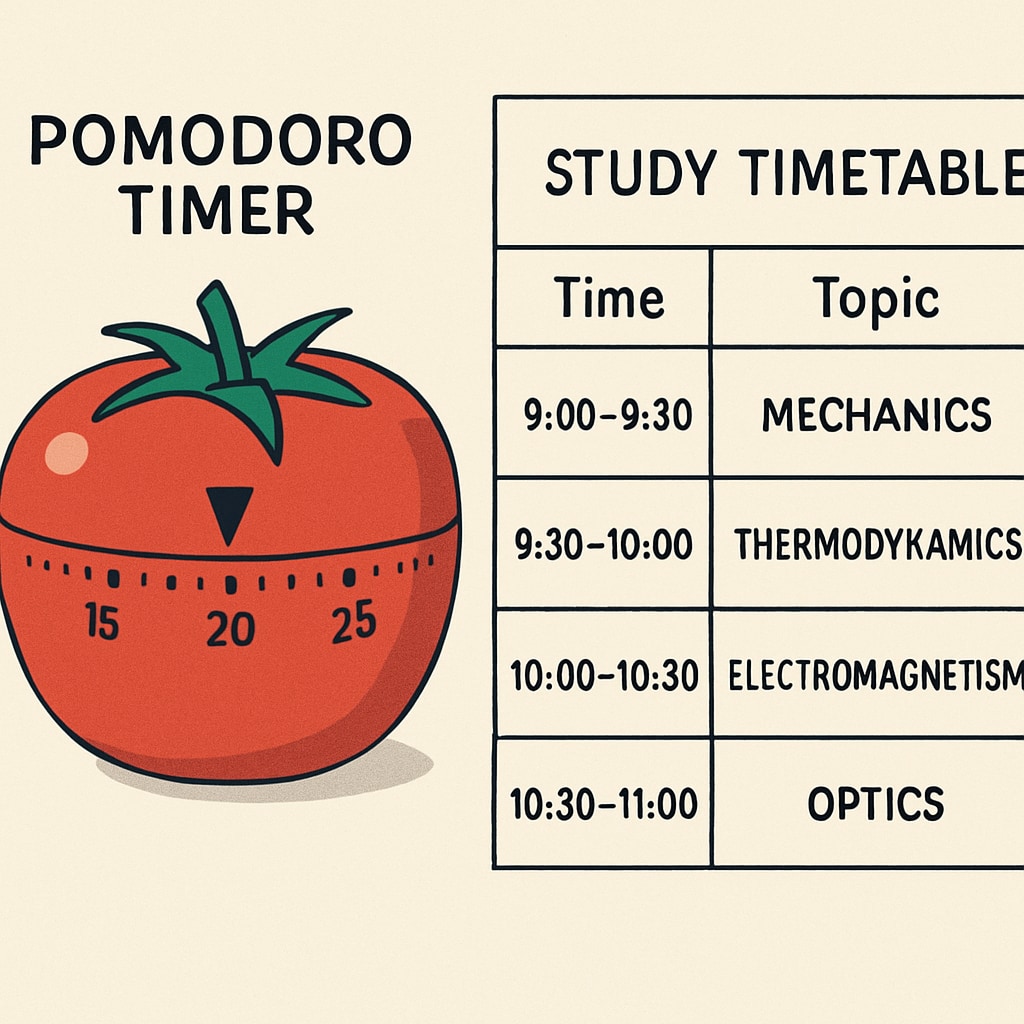Managing physics backlogs, time management, exam preparation concurrently can be overwhelming, especially for students juggling personal obligations and tight schedules. Physics, being a subject that often requires conceptual understanding and problem-solving abilities, demands strategic planning to efficiently tackle multiple topics. This article provides actionable strategies to help students overcome these challenges, achieve their academic goals, and regain confidence in their studies.
Prioritize Physics Topics Based on Relevance
When dealing with multiple physics backlogs, students must first prioritize what to study. Identify key topics that are critical for upcoming exams or foundational for advanced subjects. For example, if mechanics underpins other areas like thermodynamics, this should be reviewed first. Categorizing topics into “urgent,” “important,” and “secondary” can streamline the process and help focus efforts where they matter most.
- Review syllabus: Check the exam syllabus to understand what will be tested.
- Consult teachers: Seek advice on high-weightage topics or commonly misunderstood concepts.
- Use past papers: Analyze previous exam questions to identify patterns.

Time Management Techniques for Physics Exam Preparation
Effective time management is crucial for clearing backlogs under pressure. Without a structured schedule, students risk wasting precious hours on less impactful tasks. Below are several techniques designed to maximize productivity:
- Create a study timetable: Allocate fixed hours to each topic, ensuring balance between theoretical reviews and practical problem-solving.
- Adopt the Pomodoro technique: Study in focused intervals (e.g., 25 minutes of work followed by a 5-minute break) to maintain concentration.
- Limit distractions: Use apps or browser extensions to block social media during study sessions.
- Set daily goals: Break larger tasks into smaller, achievable milestones to maintain momentum.

Leverage Active Learning Methods
Passive studying, such as rereading notes, is often ineffective for physics. Instead, active learning strategies can significantly enhance understanding and retention:
- Practice problems: Solve numerical and conceptual problems regularly to test understanding.
- Use flashcards: Create flashcards for formulas and definitions to facilitate quick reviews.
- Group study: Collaborate with peers to clarify doubts and learn alternative problem-solving approaches.
- Online resources: Platforms like Khan Academy or Britannica provide free tutorials and explanations.
By integrating these methods into daily routines, students can actively engage with the material and improve recall during exams.
Maintain Mental Clarity Under Pressure
Balancing academic backlogs and personal obligations can lead to stress, negatively impacting performance. Therefore, psychological well-being is as critical as subject mastery:
- Practice mindfulness: Techniques such as meditation or deep breathing can reduce anxiety.
- Take care of health: Ensure adequate sleep, nutrition, and physical activity to sustain focus and energy.
- Seek support: Discuss challenges with family, teachers, or counselors to receive encouragement and advice.
- Celebrate progress: Reward yourself for completing milestones to stay motivated.
Managing mental clarity enables students to remain composed and maximize their productivity during preparation.
Final Thoughts
Overcoming physics backlogs, time management, exam preparation challenges may seem insurmountable, but with a strategic approach, students can make substantial progress. By prioritizing topics, implementing effective time management techniques, adopting active learning methods, and maintaining mental clarity, students can tackle their backlogs efficiently and confidently approach exams.
Remember, persistence and adaptability are key. With consistent effort and the right strategies, academic success is within reach!


